Singapore Dreaming
Six NUS alumni entrepreneurs from across different generations reflect on hopes and aspirations, and where our collective wishes will bring the nation.
What It Takes To Make It
The relentless quest for the '5Cs — cash, career, car, credit card, condo — has been an all-consuming pursuit of many Singaporeans in recent decades. But with the new realities of today, and changes in our society and values, are the markers of success still the same in this country?
OUR PANEL
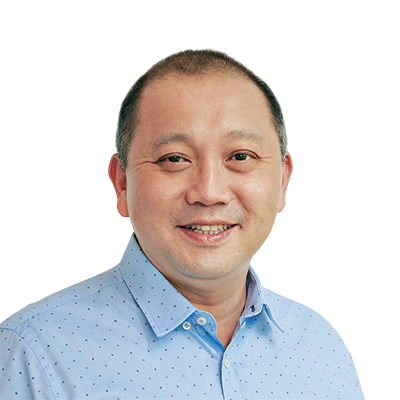
Mr Jason Ng
(Business ’90)
54, Healthcare company director
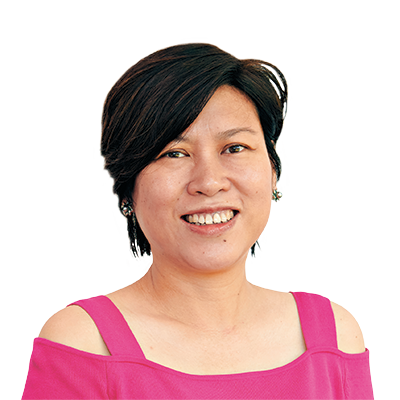
Ms Adeline Thia
(Arts and Social Sciences ’91)
Marketeer and Career Coach
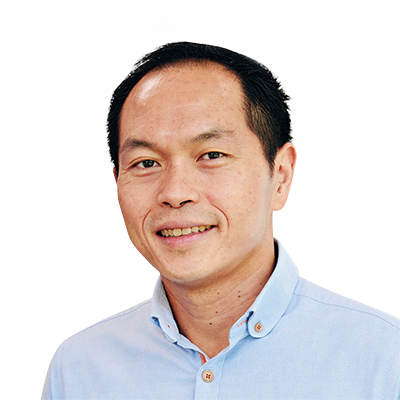
Mr Kenny Eng
(Design and environment ’99)
45, Agricultural Entrepreneur
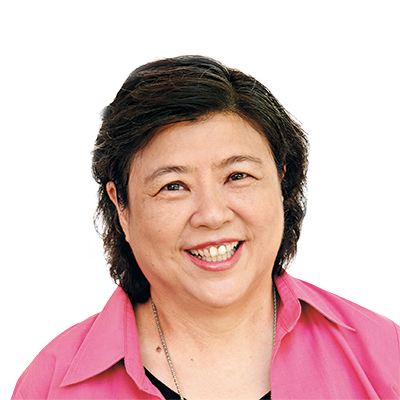
Ms Ean Yeo
(Business ‘85)
56, Executive Consultant
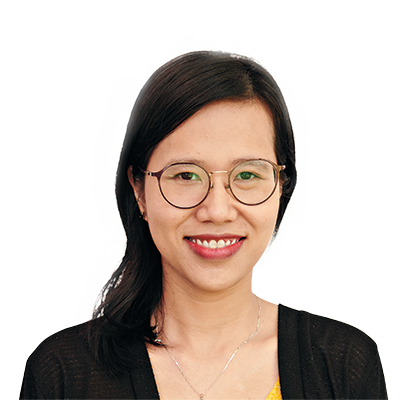
Ms Janny Huynh
(Business ’08)
32, Marketing manager
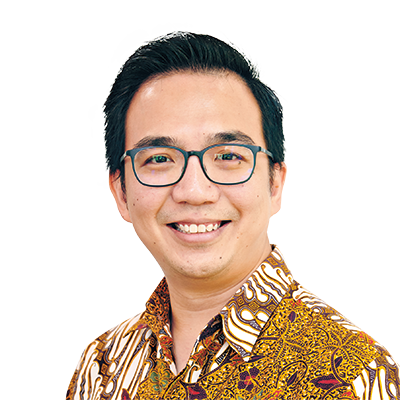
Mr Imran Mohamad
(Business ’10)
35, Entrepreneur
What is your understanding of the ‘Singapore Dream’?
Ean Yeo: I was born in 1963, before independence. As a child growing up in a two-room flat, the Singapore Dream back then was simply being able to survive, and progress through an education. That said, even while studying in Raffles Girls School, I wasn’t thinking of going to university: I certainly played quite a lot and didn’t feel a pressure to excel. One simply moved on however they could, one step at a time.
Jason Ng: I was born when Singapore gained independence, and to me, the Singapore Dream was to be a graduate — and own a HDB flat. At the time, getting a flat in a place like Pasir Ris was like striking lottery! It wasn’t about credit cards and all the other 5Cs — but now even those are passe.
Adeline Thia: Going to university was something expected of my siblings and I as our uncles — who we looked up to — were graduates. The path was pretty much set out. And after that it was the 5Cs: studio apartment [condo], car, career, etc. But for my son, who is 20 years old now, the Singapore Dream is about being able to chart a career overseas. The expectations and standards are different.
Why do you think is shaping the changing aspirations of Singaporeans?
Kenny Eng: Our parents worked hard so that we wouldn’t have to suffer. Yet my mother also told me to pick the Normal rather than Express stream in secondary school because it would be less stressful. Going to NUS wasn’t a dream: it was simply the path that was laid out nicely before me. And looking back, the real Singapore Dream wasn’t about us gaining recognition as individuals, but as a part of the nation. Growing up, I relished screaming and cheering for the Singapore team during the Malaysia Cup. And when I went to Penn State University in the US as part of an exchange during my NUS days, I fiercely wanted to be identified as a Singaporean, for the locals immediately assumed that we were from Japan or China. As a people we’ve come to realise that Singapore is our home and we have to build it up.
Janny Huynh: When I first moved from Vietnam to Singapore to study at NUS, the dream was to get a better education, a good job and repay my student loans. But the real dream was when I met Imran and started a family. As we became parents, I came to realise that the dream now is to provide our children with the environment and experiences to grow emotionally — to connect with nature and people around them, and recognise what they want for themselves, rather than what I want for them.
Imran Mohamad: My mum and dad were both born in 1957 and went to Raffles Girls and Raffles Institution respectively. When I was born in 1984, the structure of the society and what was expected of one were all in place. There was a very clear path for me, given my parents’ educational background, and my position as the eldest son in the entire extended family. My parents certainly projected their dreams on me: studying overseas, scholarships, doing a doctorate… and I lived with that responsibility to fulfil the dream. I grew up very angsty because I could never choose the subjects, schools or even extra-curricular activities for myself. I asked myself what the point was of following the route and decided to figure out my purpose in life. I started to read and talk to people and develop my own ideas. Business intrigued me, and NUS allowed me to earn credits through real world experiences rather than solely through classes, and in that way I was able to put myself on the path to being an entrepreneur. Our aspirations are changing partly because our parents have put us in a position where we don’t have to worry about survival issues, thus allowing us the kind of headspace to think about such things — but it is also because the world is changing. We cannot be following old paths in a new world.
Ean: Each generation has their own dream. For those above 70 years of age, having a job and housing, and being able to provide for their loved ones were what they sought. For my generation, we want to be enabled and also enable the future generations. I, for one, am now pursuing a Masters in Science on Gerontology. And I think the future generation seeks to be empowered. It is an evolving dream — one which really doesn’t have to be tied to the type of house you own! I am very disturbed that we keep telling people that their house is a significant indicator when it comes to their realisation of the Singapore Dream.
What then are the markers of “success” — have they changed too?
It is not all about making big money, for is the material dream worth the cost
of the nation spending $3.1b treating stress-related disease annually? Mr Imran Mohamad
Adeline: My personal definition of success has changed: at graduation the common markers of success were the 5Cs, but now, it is about happiness and being agile and adaptable to changes. I know how fast the economy changes and how disruptive the changes can be. I have seen those with a good degree not ‘make it’ in life because they weren’t resilient; and, at the same time, ‘O’ Level holders who are very successful. I realise that strong values and a good character are more important than academic achievements: good results are a bonus, but it is your mentality and positive mindset that will take the individual — and this country — forward.
Kenny: Change is the only constant and disruption is a key thing now. Older folks had experiences which they use to guide the younger generation — but whatever happened in the past may not be relevant today. Success today doesn’t have to be measured in dollars and cents, but the social impact we make.
Janny: Having moved away from ‘survival’ mode, success is really not about rising in socio-economic status anymore. Success would be to work on myself holistically and live a life that sets a positive example for my children, to know that success is not about leading a “better” life (by somebody else’s standards), but to figure out what their life is.
Imran: Success is different for everyone — the moment you prescribe one thing, there will be zero tolerance for everyone else who doesn’t subscribe to the same notion. We need to have many pathways to success.
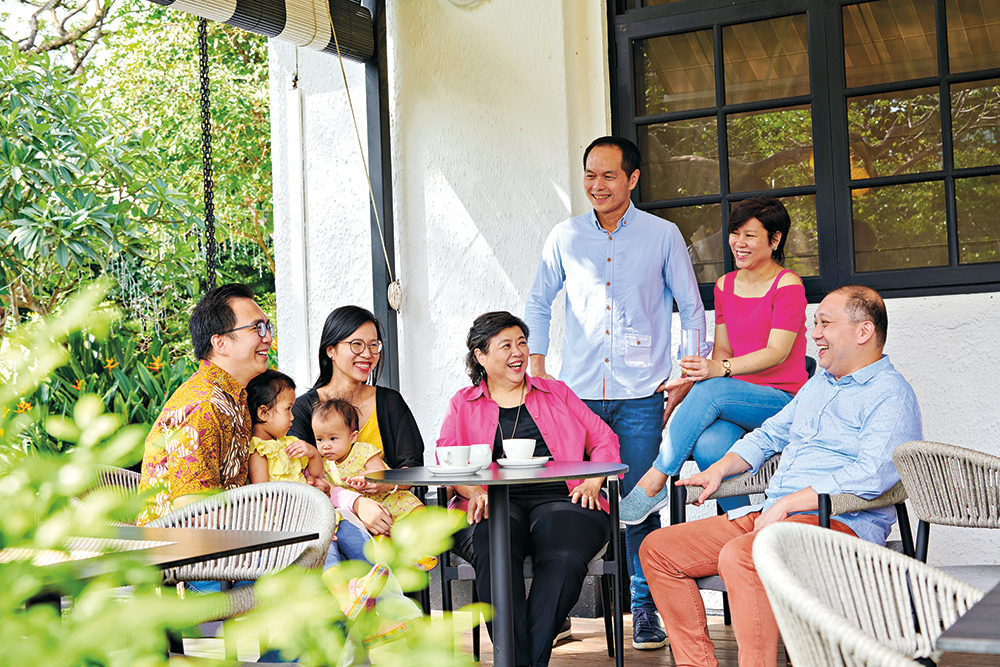
What can Singaporeans do to support each other in this evolving dream?
Kenny: I was once asked by a minister what I felt the government should do to steer Singapore into the future. And my answer was this: to ‘do’ less and encourage more. Given the rapid rate of change, there is no predicting what academic course would be the most useful in the future, or which profession would be in demand. The disruption in the world is beyond any political party’s ability to predict, so we can no longer use past successes as a guide to navigating the future. The companies that did that — such as KODAK — have failed, and it would be very troubling if we continue to apply old structures in the changing world. I have to emphasise that community is the key to our future — only as a collective can we change the structure.
Jason: The system can be more encouraging of risk-taking, or doing things out of the box. I once witnessed a group of junior college students doing an unorthodox fundraiser at Bugis Junction being questioned by the police in a rather high-handed manner. Some of them would have lost all aspirations of entrepreneurship that day. We need to allow people to dream and do things differently.
Imran: To move forward, we need give people space. The young entrepreneurs are motivated by a passion to find solutions to the challenges ahead — it is not all about making big money, for is the material dream worth the cost of the nation spending $3.1b treating stress-related disease annually?
Adeline: While coaching, I met a lot of people in their 50s going through depression because their success was defined by their career — which has been disrupted. That is why I expect my son to be agile and grow. And for myself, I’ve been setting aside a part of my income to learn for the last five years: and I am starting a new job in a fintech company next week, at my age! Having a growth mindset is very important.
What is your outlook for 2020?
And looking back, the real Singapore Dream wasn’t about us gaining recognition as individuals, but as a part of the nation. Mr Kenny Eng
Imran: Janny and I just had a chat and we decided that 2020 is going to be awesome — because this year, we will choose how we are going to feel and we are going to do what we need to feel that way. We have to have that optimism especially in a time when there is a lot of doom and gloom. If you centre yourself and realise who you can be and what you can do, you will have the fluid strength to think out of the box, and work for the common good.
Jason: If you look at everything that is happening in the economy, it will be challenging year. Yet it could also be a turning point that will present a lot of opportunities for individuals and the country.
Ean: How 2020 will turn out is in the hands of everyone. Everyone can have their definition of a good year and it is our hands to overcome and mitigate the challenges. With resilience we will navigate the changes and disruptions. I think that Singapore has a strong foundation, so we don’t short change ourselves in our ability to face up to adversity. The threats are real, but we can look at our strengths and issues and go forward. And we need every hand on board to do this.
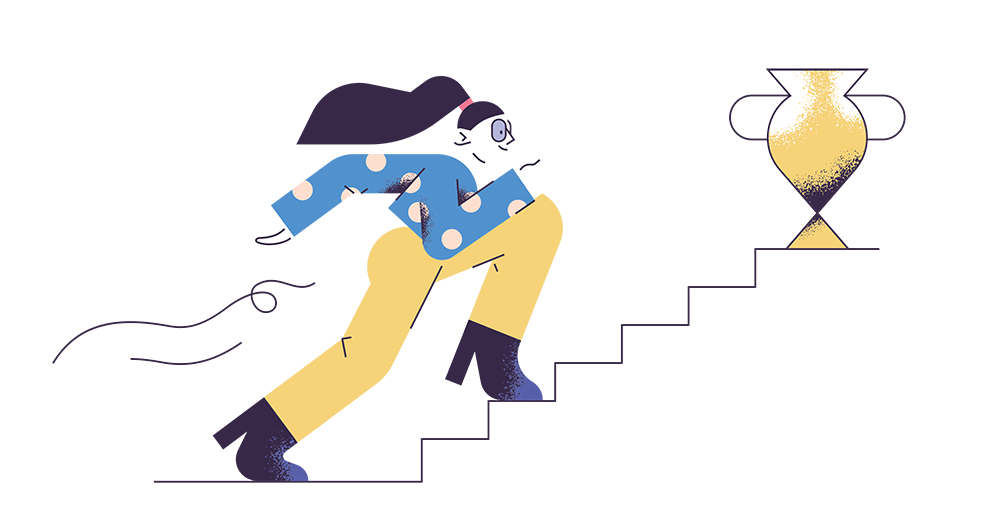
If you’d like to join our Forum panel, do write to us at OARconnect@nus.edu.sg to express your interest and pick from our list of future discussion topics that you may want to be part of.
Text by Koh Yuen Lin. Photos by Lionel Lai.